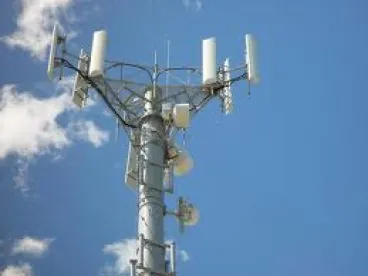FCC Releases Draft Report and Order Expanding PLMR Spectrum
Last week the FCC released a draft Report and Order (R&O) that seeks to expand access to Private Land Mobile Radio (PLMR) spectrum in the UHF, 700 MHz, and 800 MHz bands. Among other changes, the R&O would amend Part 90 of the Commission’s rules to add 318 new interstitial channels in the 800 MHz band, make new UHF channels available in gaps located between the Industrial/Business pool and other designated portions of the band, and extend conditional licensing to the PLMR stations operating in the 700 MHz public safety band. The R&O will be considered at the Commission’s October 23 Open Meeting.
FCC To Consider CBRS Order at October Open Meeting
The FCC will also address the 3.5 GHz Citizens Broadband Radio Service (CBRS) Order at its upcoming Open Meeting on October 23. The Order proposes limited changes to the Commission’s CBRS rules adopted in 2015), including increasing the size of Priority Access License (PAL) areas from census tracts to counties; extending the license terms to ten years; and establishing end-of-term performance requirements for licensees.
Unlicensed 6 GHz Band NPRM
Last week the FCC issued a Public Notice opening a new docket for its draft Notice of Proposed Rulemaking (NPRM) on unlicensed use of the 6 GHz band, which will be considered at the FCC’s upcoming October 23 Open Meeting. The NPRM proposes to allow unlicensed devices to operate in the band under the control of automated frequency control (AFC) systems. Many critical infrastructure licensees operate point-to-point microwave systems in this same band to support backhaul and other important operations. The Commission’s proposed use of AFC systems is intended to limit interference to licensed operations.
Public Safety Groups Oppose Industry’s Proposed Vertical Accuracy Metric for Wireless 911 Calls
NENA and the International Association of Fire Fighters (IAFF) filed comments last week in opposition of CTIA’s vertical 9-1-1 indoor location accuracy proposal. NENA stated that the ±5-meter benchmark proposed by CTIA is neither sufficiently supported by the Test Bed’s Stage Z Report nor sufficiently precise for the purposes of 9-1-1. The IAFF, which represents more than 315,000 full-time professional fire fighters and emergency medical personnel, called for the Commission to reject CTIA’s proposal and instead require vertical location information that provides true floor level accuracy (i.e. no more than 3 meters). Reply Comments on CTIA’s proposed standard are due October 11.
DOJ Files Suit Opposing California’s Net Neutrality Law
On September 30, 2018, the U.S. Department of Justice filed a lawsuit against the State of California alleging that the state’s net neutrality bill unlawfully imposes burdens on the Federal Government. The bill, signed by Governor Jerry Brown on the day the DOJ filed suit, restores the net neutrality rules repealed by the FCC’s Restoring Internet Freedom Order. Attorney General Jeff Sessions stated that California’s legislature enacted “an extreme and illegal state law attempting to frustrate federal policy.” FCC Chairman Ajit Pai supported the suit, stating that “the Internet is inherently an interstate information service.”
House Subcommittee Hearing Focuses on 9-1-1 Issues
The House Subcommittee on Communications and Technology recently held a hearing to address legislation focused on next-generation 9-1-1 (NG 9-1-1) and state fee diversion issues related to 9-1-1 funding. The 9-1-1 Fee Integrity Act, would direct the FCC to consult with public safety organizations and issue rules to prevent state, local, and tribal governments from diverting 9-1-1 taxes, fees, or charges from purposes related to 9-1-1 services and operational expenses. The National Non-Emergency Mobile Number Act would create a federal uniform code number that people could use to reach government services in critical but nonemergency situations.







 />i
/>i

